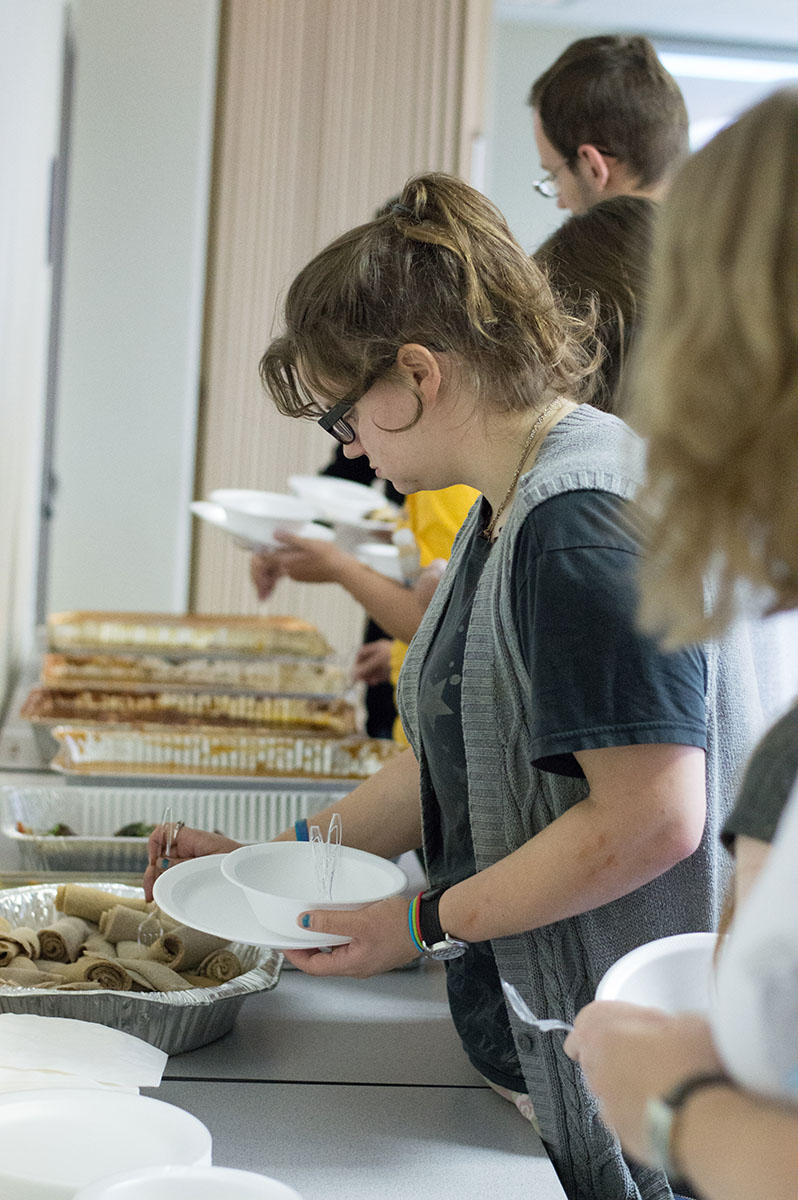When talking about Ethoipia, a number of different images can be conjured in one’s mind. But do people often think of Jews or the Jewish community when discussing Ethoipia?
On September 25th, the Jewish Student Association (JSA) held an Ethiopian Shabbat, put together by JSA president, Austin Reid, and history professor Jonathon A. Loopstra.
Similar to the Sabbath day in the Christian faith, Shabbat lasts from Friday evening until Saturday evening. Practicing Jews set aside this time for rest, fellowship, and study of God’s word. A Shabbat, as Reid said, is “a Jewish holiday … pretty much a day of rest just to reflect and contemplate on God … a lot of times people go to synagogue on that day or have giant meals with their family.”
The students who attended the Ethiopian Shabbat ate a traditional Ethiopian meal of sponge bread, turkey seasoned with traditional spices, and several stews pertinent to the typical Ethiopian meal.
When asked what exactly the Shabbat had to do with Ethiopia, Reid said, “There are two things we wanted to get across … Ethiopia is actually home to a Jewish community that’s hundreds, maybe thousands of years old … A lot of people don’t know that. They think of Judaism and Jews as living in, like, a certain area of the world but we want to showcase that no, Judaism is a global faith, that there is adherence in China, India, Africa, South America, across the world … including black African communities of Jews in Ethiopia …. We’re really using this as a time to highlight their traditions and their unique form of Judaism.”
As the attendees ate, they watched a documentary on the Jewish community in Ethiopia and their exodus to a better life in Israel, which modern Jews believe is the land God had promised to them. The documentary covered the plights of several different Jewish families living in Gondar, a city in northern Ethiopia. These families had applied for transportation to the modern Jewish world of Israel, away from the dejection and poverty of Ethiopia.
Students watched the documentary following some families that realized their goals in Israel while other families waited in Ethiopia. Along with the video was a small collection of artifacts from Ethiopia. Both the video and the artifacts were provided by Dr Loopstra. Accompanying the artifacts were several books regarding Judaism and Christianity in Ethiopia and Eastern Africa.
This experience helped students in attendance not only see into the culture of another country, but the students now better understand the culture around them at Capital. Although most of the JSA members are not Jewish, almost 30% of Bexley residents are. On the topic of presence of other religion in Ethiopia, Reid said, “Ethiopia is actually one of the worlds oldest Christian states… and it’s still home to a huge Orthodox Christian community.”
This is not the only event held by the JSA this year, and many more events are scheduled for the remainder of the year.
“So far this year, we [the Jewish Student association] have had a Schmooze with the Jews event, sort of a meet and greet with people,” said Reid “We did have a Rosh Hashanah party on campus, we’re hoping to go to Succot [a Jewish food festival celebrating the Exodus next week … Last year we did a lot of Shabbat dinners with Bexley residents.”
In the future, Austin said the JSA hopes to have an event for every single major Jewish holiday on campus, as well as educational programs similar to the Shabbat.
“We’re surrounded by this culture, and a lot of students don’t know how to relate to it, what it all means,” said Reid, “I think it’s a unique opportunity … to learn about America’s largest religion outside of Christianity … I think for all of us it’s a good thing to maybe know a little bit more about.”

